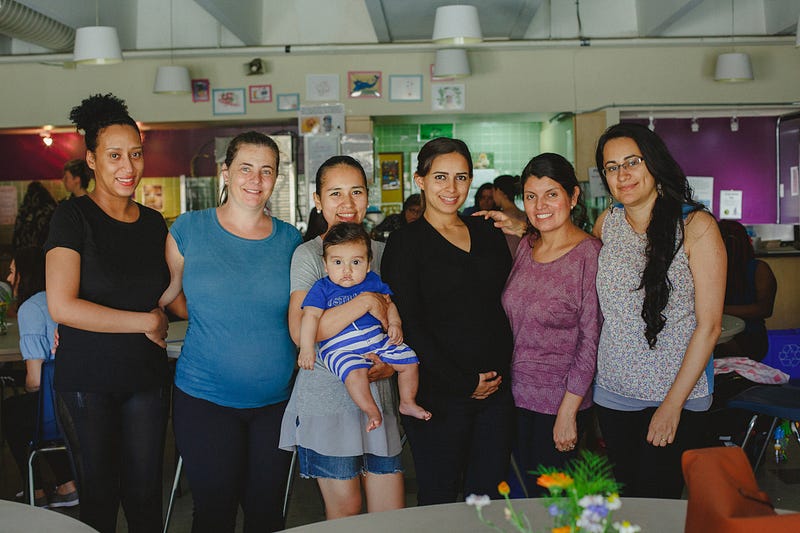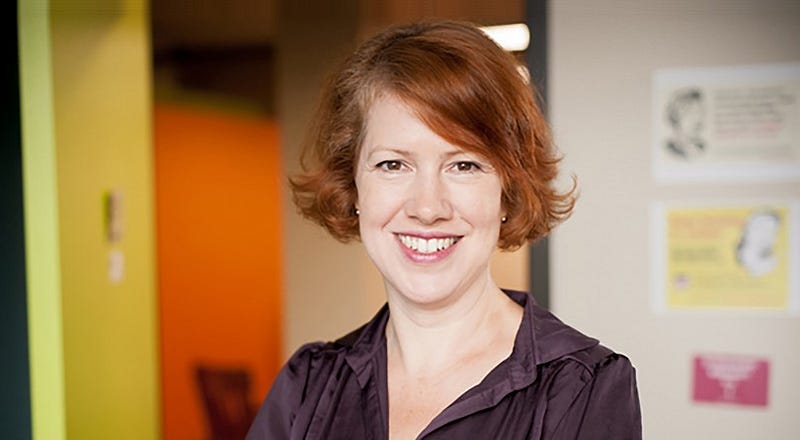By Rachel Gray, Executive Director of The Stop Community Food Centre

When my parents lived in Moscow in the early 1990’s, they were curious about what International Women’s Day signified in Russia, given it was a national holiday.
The explanation offered by a colleague was simple: it was an opportunity for men to drink more vodka than on a regular workday.
I imagine we can expect a similarly empty marking of the day here in Canada. Our social media feeds will fill with the requisite hashtags, creative emoji placements, and pithy messages of empowerment. And at the end of the day, Canadian women will still be making 75 cents on every dollar made by a man — a gender pay gap that will take almost a century to close at the rate we’re going.
There’s a marked divide between our feminist talking points and our budgets here in Canada — yet another gap that International Women’s Day puts into stark focus.
Simply put, we don’t invest in women, either equitably or strategically.
The late Kate McInturrf’s gender-based budget analyses were critical in bringing these issues to light. She used data to ask vital questions about how government investments differed across gender lines, and across intersections of class, race, and Indigeneity.
For example, the 2016 Federal budget earmarked $11.6 billion for measures that would create 143,000 jobs — but only 36% of those jobs were likely to be for women. Violence against women costs Canada about $415 per capita, or $12 billion annually, yet the government spent just $5 per capita to address the issue.

McInturrf’s pioneering work, analyzing Canadian budgets was like an episode of The Wire — “Follow the money.” Because we don’t invest in women, poverty has become feminized. 12% of all women in Canada live in poverty, a number that increases significantly for racialized, Indigenous, newcomer, and trans women.
Women continue to be primary caregivers for children and aging parents, and these responsibilities offer us less time for paid work and have a lifelong impact on our earning capacity. When we do work for pay, it’s often for wages that are thoroughly inadequate. Women are the majority of Canada’s minimum-wage workers, and a third of us make less than $15 per hour. Most poor women are working, but can’t earn enough to lift themselves out of poverty because of these low-paid and precarious jobs.
Women living in poverty are also more vulnerable to domestic violence, because they have less capacity to leave. Without economic mobility, we have no personal mobility.
During a pre-budget consultation in September 2017, McInturrf discussed a $100 million investment made by the Dutch government in a gender equality fund, and shared the massive impact that it had had on the lives of hundreds of thousands of women.
“If I can convince you to take one action to make one change that has the power to change lives, and indeed to save lives, while I still have the energy to harass you, it is this: invest in women’s organizations,” she pleaded.
McInturff died last summer at the age of 49, but the urgency of her plea, and the impact of her work lives on. Gender-based analysis remains a form of truth telling. It tells us what our tax dollars actually accomplish, where they ultimately end up, and where they don’t.
It’s not clear if Canada is comfortable with telling the truth, or more especially, with women truth-tellers. But on this International Women’s Day, I’ll be thinking about McInturrf and other truth tellers like her. I’ll be thinking of the 1 in 12 Canadian women who are living in poverty, and their daughters. And of all the women who come to places like The Stop Community Food Centre, who struggle to put food on the table. Finally, I’ll be thinking of how we’re all left short-changed by the everyday practice of not being honest about women and numbers.
Undoubtedly, a shot of vodka or well-worded tweet would be easier to stomach.
Rachel Gray is the Executive Director of The Stop Community Food Centre, a nationally respected non-profit organization that’s been on the front lines of alleviating food insecurity in Toronto for over 35 years.
